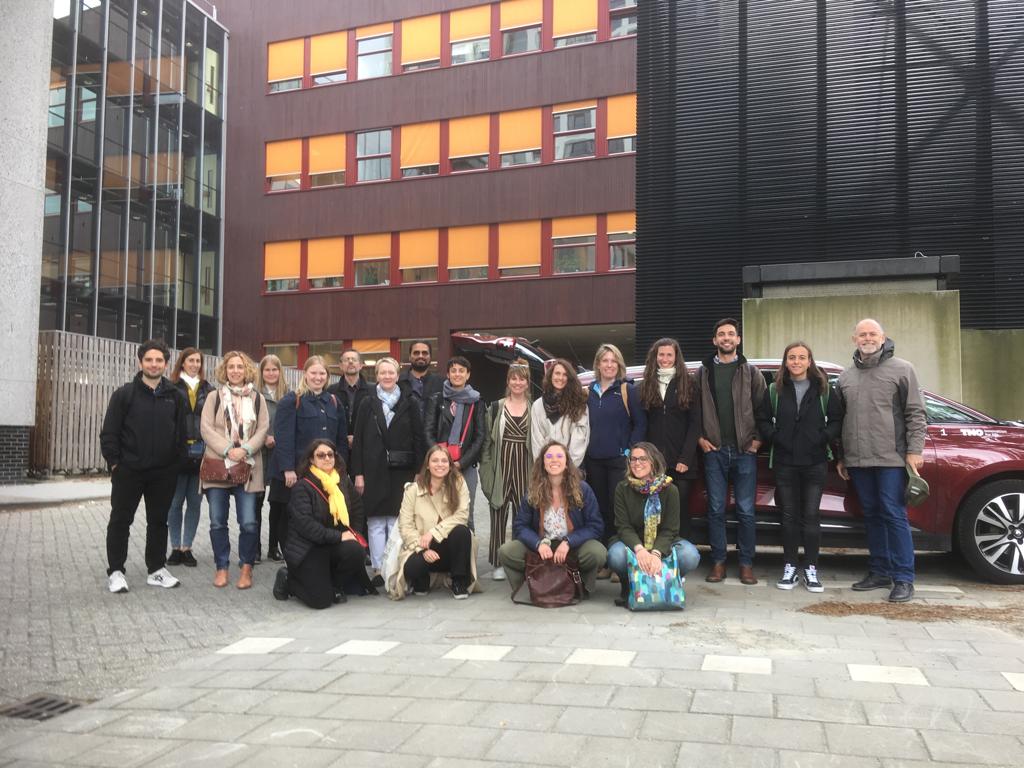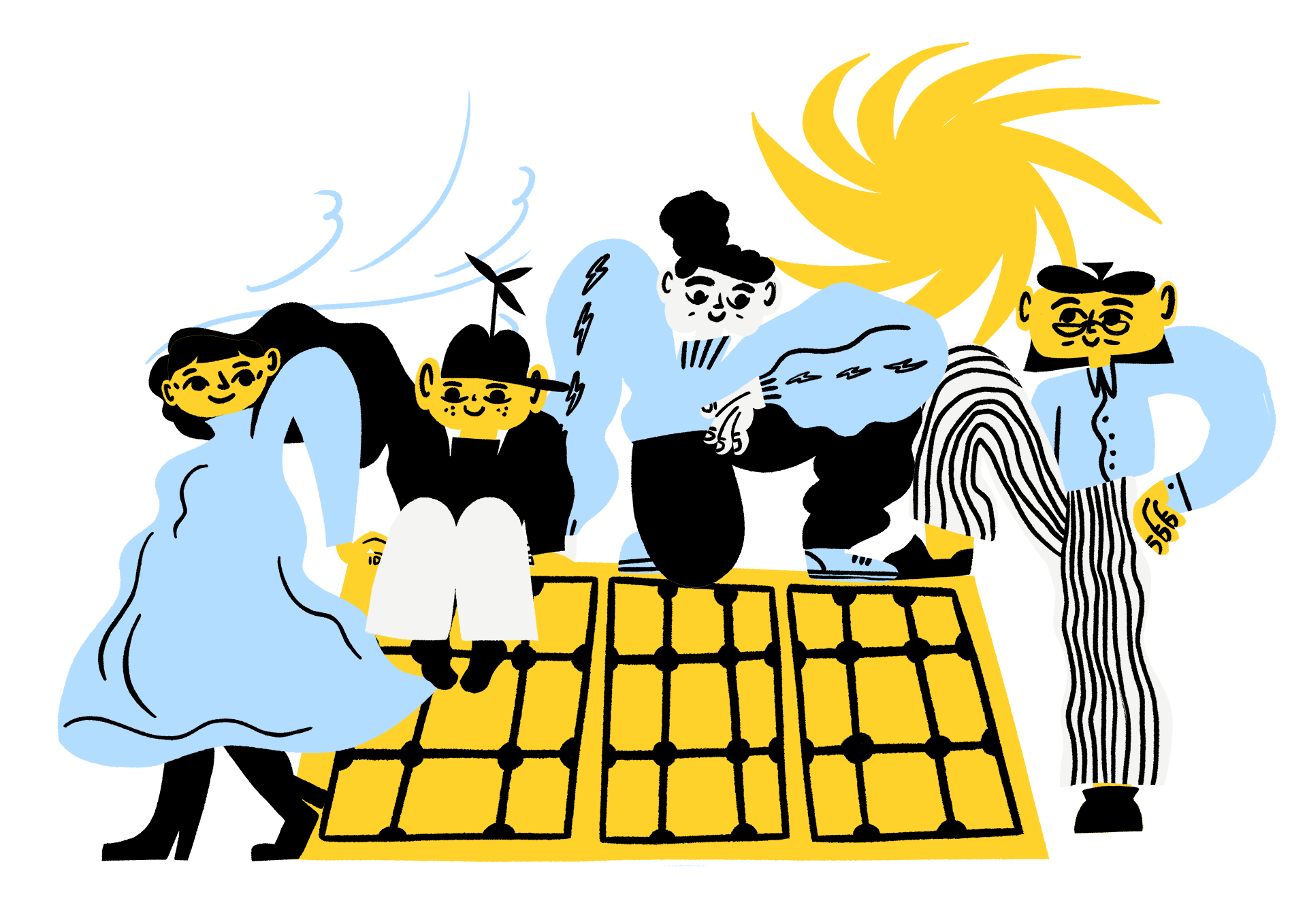The first two years of the energy citizenship research project GRETA have gone by swiftly. Read what we have accomplished so far and what is still to come.
For the past two years, the GRETA project has been exploring the forms of citizen participation in the energy transition. The project has brought together experts from all over Europe to exchange ideas and collaborate on new approaches to energy citizenship. We have also engaged with local communities and stakeholders and worked to raise awareness of energy citizenship and energy communities.
As we enter our project’s final year, we have several exciting activities and initiatives planned. But first, let’s take a look at what we have accomplished so far.

Highlights from the first two years of GRETA – studying energy citizenship
Defining what energy citizenship is and how it emerges
Energy citizenship is a relatively new concept. Our first task as a research project studying energy citizenship was to define energy citizenship from our project’s point of view and develop a framework to study its emergence (link to the framework). We reviewed past literature and drafted an initial definition and framework that could be tested in our case studies.
In short, our definition of energy citizenship goes as follows:
“Energy citizenship is about the active participation of citizens in energy systems in a particular geographical area. Active participation can be social and political, either as individuals (e.g., through energy efficiency measures in households) or in larger groups (e.g., through engagement with energy policy in climate activist groups or energy communities). The effects of energy citizenship can be positive (e.g., supporting the clean energy transition, investing in energy-efficient appliances or participating in a local energy initiative), negative, (e.g., public resistance to new forms of renewable energy), or neutral.“
Studying energy information needs, energy justice, and geographical levels of energy citizenship
Where does energy citizenship occur? What do we need to do to ensure a just energy transition? What kind of information do citizens need to become active energy citizens? How do citizen-led energy systems work in practice? We gathered information on all of these questions before we set out to test our theories in practice.
Access to energy is an innate right. However, it doesn’t always seem like it in our current energy systems. We studied what is needed to make a just and meaningful energy transition. (link to the report)
The quality of available energy information is crucial in the citizen-led energy transition. We found out what kind of information needs our case studies have and how the quality of energy information should be improved. (link to the report)
We wanted to study how energy citizenship emerges at different geographical levels: local, regional, national, and supranational levels. As a result, we created a taxonomy of geographical levels and drivers. (link to the report)
Putting knowledge into practice with six energy communities
To learn from the citizens and communities, we studied six different types of energy communities around Europe. These communities helped us to understand how energy citizenship can develop and flourish and, on the other hand, what might act as a barrier to it. Our work with the communities included co-creation workshops that brought together residents, companies, and policymakers to develop and test tools to support the communities.
These are the communities we got to work with and links to our final case study reports:
Renewable energy district in Bologna Pilastro-Roveri, Italy (link to the report)
Natural gas-free neighborhoods, The Netherlands (link to the report)
Coopérnico – Renewable energy-driven cooperative, Portugal (link to the report)
UR BEROA – Energy efficiency-driven cooperative, Spain (link to the report)
Earnest App – A virtual community for sustainable mobility in Darmstadt, Germany (link to the report)
Electric autonomous and connected mobility network (link to the report)
Stay tuned for this – tools and recommendations for energy communities
The final year of the GRETA project promises to be exciting, with activities and initiatives that help to promote the concept of energy citizenship and to support citizen-led energy initiatives across Europe. By empowering citizens to take an active role in the energy transition, the GRETA project is helping to create a more sustainable, democratic, and equitable energy system for the future.
Surveying 10,000 citizens about energy behavior
Last autumn, we conducted a multinational survey and got answers from all over Europe. We gathered information on energy consumption, attitudes, and behavior. The results of our survey will be published by the end of the project.
Tools for energy citizenship and energy communities
We have been studying different types of climate pacts, contracts, agreements, and manifestos that support sustainable energy transition on different levels. Based on the work we have conducted with our case studies, we are creating guidelines for Energy Citizenship Contracts and templates for Community Transition Pathways. These are concrete tools for energy communities that want to set shared goals for decarbonization.
Policy recommendations to support the emergence of energy citizenship
One of our most important outputs is policy recommendations that encompass all the learnings from our case studies and the multinational survey. We draft the recommendations together with citizens and policymakers. The recommendations are presented in a final webinar in autumn 2023.
All this will be available in the open portfolio for energy citizenship
The GRETA OPCE is a living archive of tools and information related to energy citizenship. We are currently collecting materials and adding them to the portfolio. Follow us to receive a heads-up when new material is made available!
